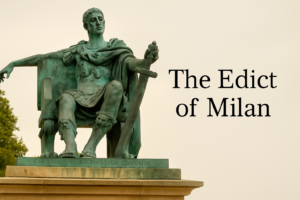Introduction
Lutheranism stands as a testament to the transformative power of one man’s convictions and the enduring impact of the Protestant Reformation. Rooted in the teachings of Martin Luther, this Christian denomination has shaped the course of religious history and continues to influence millions of believers worldwide.

History
Lutheranism traces its origins back to 16th-century Germany, where Martin Luther, a monk and theologian, challenged the doctrines and practices of the Roman Catholic Church. In 1517, Luther famously nailed his 95 Theses to the door of the Wittenberg Castle Church, sparking a movement for reform within Christianity. Luther’s teachings, centered on the principles of sola scriptura (Scripture alone), sola gratia (grace alone), and sola fide (faith alone), laid the groundwork for what would become Lutheranism.
The Reformation spread rapidly across Europe, fueled by the printing press and the widespread dissemination of Luther’s writings. Lutheranism emerged as a distinct branch of Protestantism, characterized by its emphasis on the authority of the Bible, the priesthood of all believers, and salvation by faith alone.
Core Beliefs
At the heart of Lutheranism is the belief in justification by faith, the idea that salvation comes through faith in Jesus Christ alone, apart from works or merit. Lutherans affirm the authority of the Bible as the ultimate source of doctrine and reject the notion of human works contributing to salvation. Baptism and the Eucharist (Lord’s Supper) are recognized as sacraments, conveying God’s grace through visible signs.
Worship Practices
Lutheran worship is characterized by simplicity, reverence, and a focus on the Word of God. Liturgical services often include hymns, prayers, Scripture readings, and sermons that expound upon biblical teachings. The celebration of the Eucharist holds a central place in Lutheran worship, symbolizing the presence of Christ among believers.
Cultural Influence
The influence of Lutheranism extends beyond the realm of theology to encompass art, music, literature, and societal norms. Luther’s translation of the Bible into German made the Scriptures accessible to the common people and contributed to the development of the German language. Lutheran hymns, such as those composed by Johann Sebastian Bach, continue to inspire worshippers around the world.
Contemporary Role
In the modern era, Lutheranism remains a vibrant and diverse Christian tradition with adherents spanning the globe. Lutheran churches engage in a wide range of ministries, including social services, education, and missions. Ecumenical dialogue with other Christian denominations and interfaith cooperation are central to the Lutheran commitment to promoting unity and understanding among all people.
Conclusion
Lutheranism stands as a testament to the enduring legacy of Martin Luther and the transformative power of faith. From its humble beginnings in 16th-century Germany to its global presence today, Lutheranism continues to shape the lives of millions of believers and contribute to the rich tapestry of Christian tradition.













